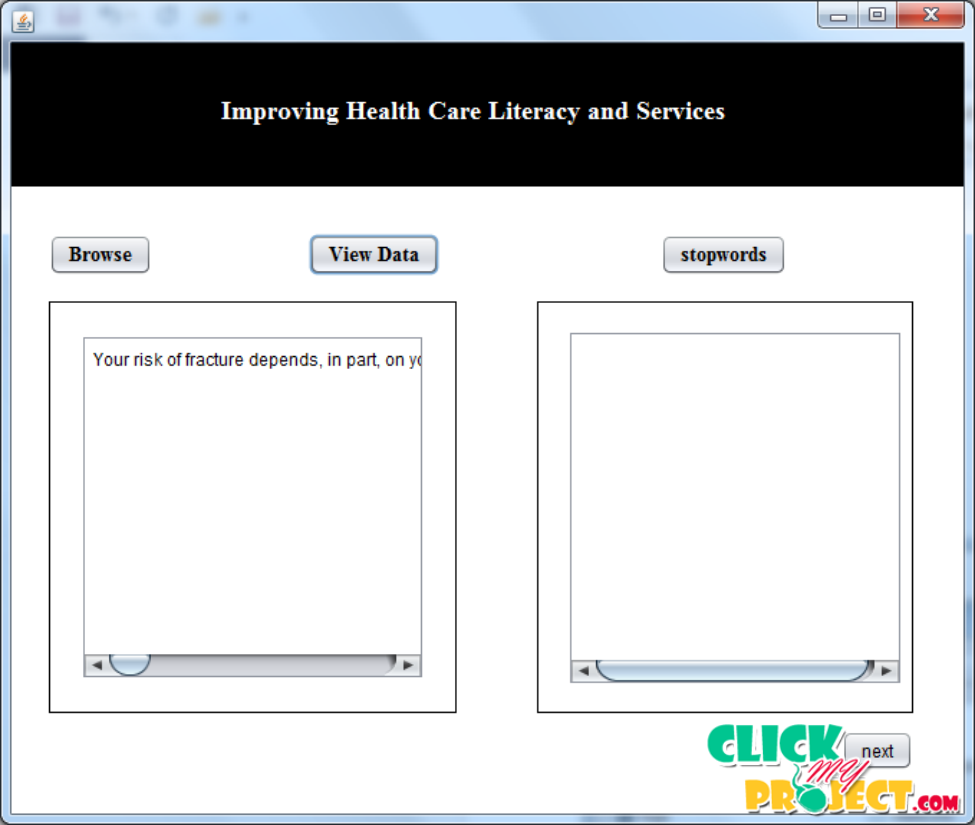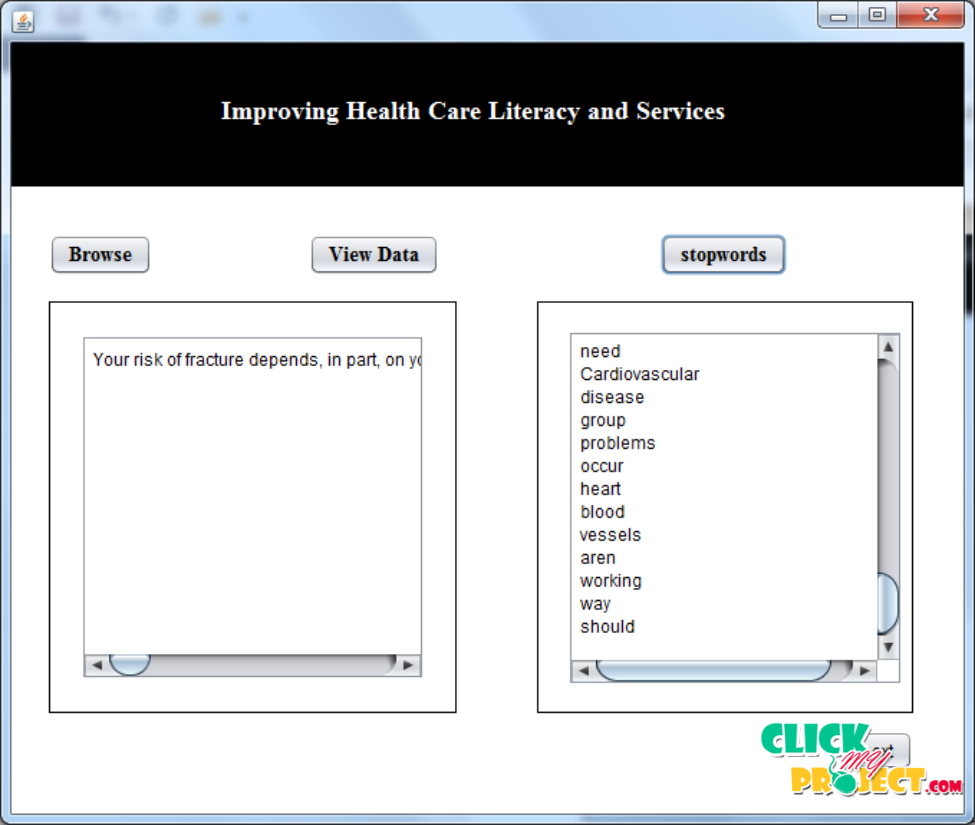Description
Communication plays a common role in expressing the views between the persons the vocabulary gap between health seekers and providers has hindered the cross-system operability and the inter-user reusability. Nowadays user prefers online services for all their needs, as these where very common even in health care services Users prefers their treatment and symptoms should require a complete analysis by a well-known professional in all around the world. Vocabulary gap between health seekers and health providers which delayed the cross-system operability and the inter user reusability. Approaches for local-global learning are discussed in this paper. Local mining extracts medical concepts from the QA pair itself and maps them to authenticated terminologies. Global learning, works towards enhancing the local mining via collaboratively discovering missing key terminologies and keeping off the irrelevant terminologies by analyzing the social neighbors. The rise of digital technologies has transformed the doctor-patient relationships. In this new era of web, when people struggle with their health concerns, most of them usually explore the Internet to research the problem before and after they see their doctors. A dictionary of vocabulary is constructed as a by-product, which is used as the terminology space for global learning. In community-based health services, vocabulary gap between health seekers and community generated knowledge has hindered data access. To bridge this gap, this pap er presents a scheme to lab el question answer (QA) pairs by jointly utilizing lo cal mining and global learning approaches. Local mining attempts to lab el individual QA pair by independently extracting medical concepts from the QA pair itself and mapping them to authenticated terminologies.




